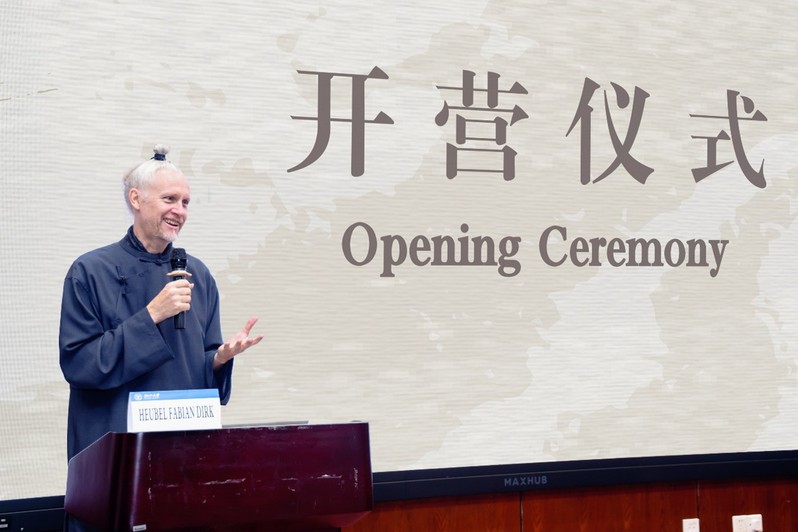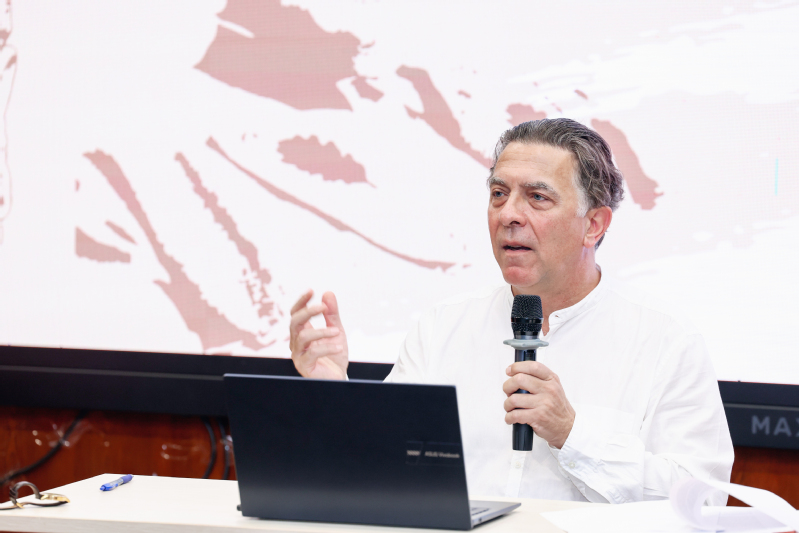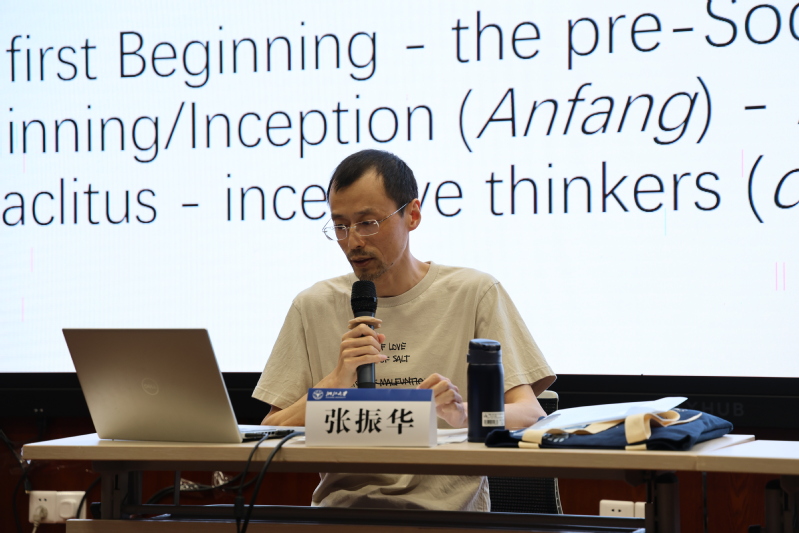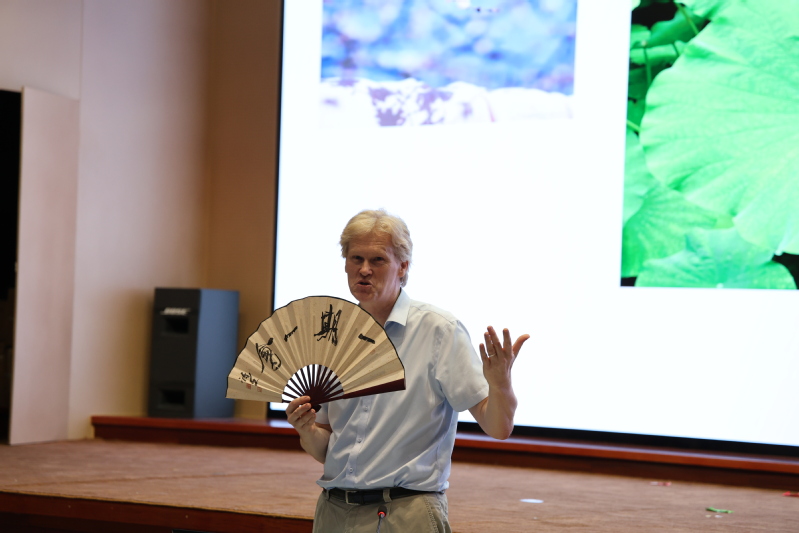From August 26 to 31, nearly 50 students from prestigious universities such as Peking University, Fudan University, Zhejiang University, The University of Chicago, Heidelberg University, and Free University of Berlin gathered at Zhejiang University for a meaningful Summer School on Philosophies of the Way.
Opening Ceremony
On the morning of August 27, all participants attended the opening ceremony.
This event aims to build a bridge for intercultural dialogue between ancient Greek, German, and Chinese philosophy, said Professor Wang Jun, Dean of the School of Philosophy, in his welcome address. He emphasized that intercultural dialogue is not only theoretical but also requires active practice and communication. Finally, he introduced Zhejiang University’s rich history and academic tradition in philosophy, expressing his hope that every student would gain an inspiring academic experience.

Professor Fabian HEUBEL from Freie Universität Berlin highlighted the summer school’s curriculum. Through lectures, dialogues, and practical activities, the program aims to deepen philosophical understanding and academic skills.

Academic Activities
The summer school featured special lectures by scholars from Freie Universität Berlin, University of Athens, University of Tübingen, University of Macau, Zhejiang University, and Tongji University.






Over five days, students from around the world engaged in academic exchanges and cultural activities, exploring possible dialogues between the thoughts of Laozi, Heraclitus, Parmenides, and Heidegger. They sought intellectual resonance across regions and experienced the unique blend of tradition and modernity in Hangzhou.


Additionally, students visited the China National Tea Museum, where they immersed themselves in the profound culture of Chinese tea.


Closing Ceremony
On August 31, the closing ceremony marked the end of the five-day journey. Professor Sun Zhouxing from Zhejiang University delivered a lecture titled The Affinity of Dao: Heidegger's Future Thinking, exploring the connections between Heidegger’s philosophy and traditional Chinese thought, particularly Daoism. He proposed that future thinking should be cosmopolitan, individual, technological and artistic, transcending East-West and ancient-modern divides while rejecting all forms of centrism to embrace an open, equal, and pluralistic future civilization.

During the ceremony, students reflected on their learning journey—the sparks of intellectual exchange, the excitement of broadening horizons, and the friendships formed. Instructors then presented certificates to all participants.


Though the summer school has ended, it represents not a conclusion but a new beginning. This program has broadened students’ perspectives on intercultural philosophy and provided a platform for deep reflection and exchange. It is hoped that students will continue to promote intercultural dialogue, integrate philosophical ideas from diverse cultural backgrounds, and expand the boundaries of human thought in pursuit of philosophical enlightenment.


